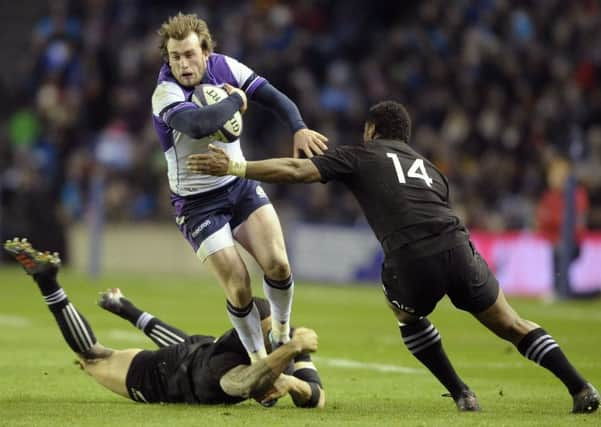Allan Massie: Scotland stars will hope to survive unscathed


Neither of the inter-city matches was a great advertisement for Scottish rugby, principally because both teams found their handling letting them down far too often. In both matches there were too many penalties. Spectators tend to blame the referee for this – and certainly Hamish Watson will be pleased that Mike Adamson won’t be refereeing him in the Six Nations. Really of course it is up to the players not to transgress. In extenuation, however, this must be difficult because the margins at the breakdown are so fine and also because many referees allow so much illegality to go unpunished. Isn’t there a law that requires a player to enter a ruck from behind the hindmost foot? Well, yes, indeed there is, but it is one you can usually disregard with impunity.
I doubt if Gregor Townsend learned anything about his players from these matches, but then I suspect he already knows the squad and the starting XV he would like to have in Cardiff in a month’s time, though it would be tempting jealous gods to write the names down now. There is encouraging news about Stuart Hogg’s hip – but then a month ago the same was said about Andy Murray’s one. Still on the medical front, it would be nice, and indeed reassuring, to see Alex Dunbar get through a full 80 minutes. Still, I doubt if Gregor will be asking Dave Rennie or Richard Cockerill to rest particular players. Injuries happen as often in training as in matches.
Advertisement
Hide AdAdvertisement
Hide AdWe already know that our first opponents, Wales, will be missing a few stars: George North, Toby Faletau, Dan Lydiate. All the same such absentees matter less than they used to, because the combination of match-day squads and numerous internationals means that replacements are rarely raw recruits. It is not like the amateur days when a player would be summoned straight from the club game and might hardly have time even to practise with his new international team-mates. Players are eased into the international game now, ten minutes here as a replacement, 20 minutes there. I should think every Six Nations coach, with the possible exception of Italy’s Conor O’Shea, has at least three XVs of capped players to choose from; Eddie Jones will have more than that. And they will all have come together at training camps. An international debut will doubtless still set nerves a-jangling, but it is surely less daunting than it used to be.
Elsewhere it seems there is little enthusiasm for the SRU’s Prize “Super Six” project of semi-pro clubs, part-controlled and part-financed by the Union itself. At least two of our best-managed and most successful clubs are believed to have said “no thanks, not interested”. This may be because there is believed to be too much control and too little money. Given that, thanks in part to the work of the academies, the transition from the Club Premiership to Glasgow and Edinburgh seems to be working not too badly, while pro players fit happily into the club game when not required by their employers, one has the suspicion that this Super Six project may never take off.
In any case the argument for putting available resources into a third pro team rather than into a semi-pro competition remains more persuasive. We are holding our ground – indeed have been making up ground over the last few years. Nevertheless the professional base here remains far too narrow. Ireland is the country we should be measuring ourselves against, and, though we beat Ireland at Murrayfield last year, and Glasgow at least compete with the Irish provinces on level terms, Ireland with four pro sides to our two have not only a bigger pool of players, but are strong enough to be able to declare that they will select only players from the four provinces for the national team. A few years back Connacht were very much the poor relations of Irish rugby, and there was talk of closing the club down – as the SRU scrapped the Borders, abruptly and with no real consultation; and nobody now fancies an away match in Galway.